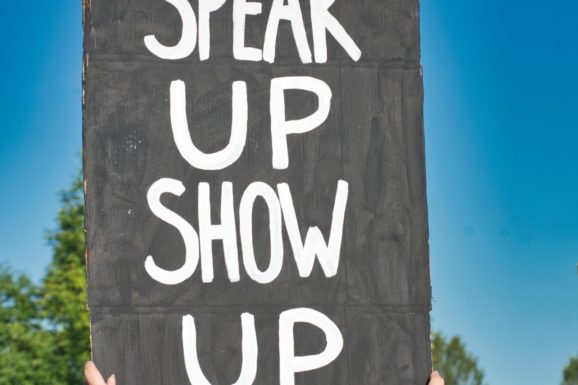Over the past couple of weeks, America has undergone an identity crisis, questioning the very fabric of the Declaration of Independence. The death of George Floyd and others has sparked the reexamination of whether all men are truly created equal under the law.
As Americans and people across the globe continue to protest against police brutality, the unjust treatment, and mischaracterization of blacks and other people of color, companies must align their corporate culture to help address these pressing issues.
But companies’ philanthropic funding to various organizations that support black communities, and the creation of sensitively crafted responses to protests, lead to these underlying questions:
What happens when the lights go off; when the cameras aren’t rolling; when the protests have ended; when the media shifts its focus to a new topic and all social media platforms are filled with the “next big news”?
Will companies go into hiding until another opportunity arises, or will companies begin implementing real change within their own organizations?
According to McKinsey & Company, company success is highly contingent upon culture in the workplace. Companies shifting to EX (or employee experience) can lead to personalized, authentic experiences that ignite passion and tap into purposes that strengthen individual, team, and company performance.
As companies continue along the path to finding solutions for cultural and organizational change, Harvard Business Review explored the following 10 Commitments companies can use to amplify the creation of racial justice in the workplace:
- Commit to anti-racism personnel policies and racial-equity training
Adopt a no-tolerance-for-racism policy.
- Commit to pay equity
Conduct a wage equity audit, and make the adjustments needed to achieve fair and equitable pay.
- Commit to giving employees a voice
Ensure representation of hourly employees, women, and people of color in all employment policy decisions.
- Commit to supporting full participation in democracy
Help your employees register to vote by registering them at work.
- Commit to lobbying for good
Commit at least 50% of your lobbying expenditures to drafting and supporting bills that would improve conditions for communities of color by increasing access to quality education and training, rebuilding infrastructure, protecting consumers, ending racial oppression, rebuilding the safety net, achieving criminal justice reform, and making police more accountable.
- Commit to paying a living wage
Research has shown that the companies that pay well and offer good benefits and treat their hourly employees with respect are more profitable.
- Commit to paid parental and sick leave
Providing paid parental and sick leave to all employees can help businesses support thriving and productive workforces.
- Commit to full health care coverage for all employees and support national health care
Ensure that a living wage actually ends up in employees’ pockets by reducing their health care contributions and supporting national health care coverage that would reduce the burden on corporations and would ensure that those without insurance — many of them people of color — are covered.
- Commit to an employee emergency relief fund or low-cost loan program
When there is an emergency, a few hundred dollars advanced by the employer can be life-changing for employees.
- Commit to democratize employment applications
Address challenges that disproportionately exclude people of color when applying for jobs.
While these commitments alone won’t solve systematic racism in America, they are one step companies can take to drive workforce equality and create lasting impact and EX in the workplace for generations to come.
Read the full article and learn more about the 10 Commitments here.
